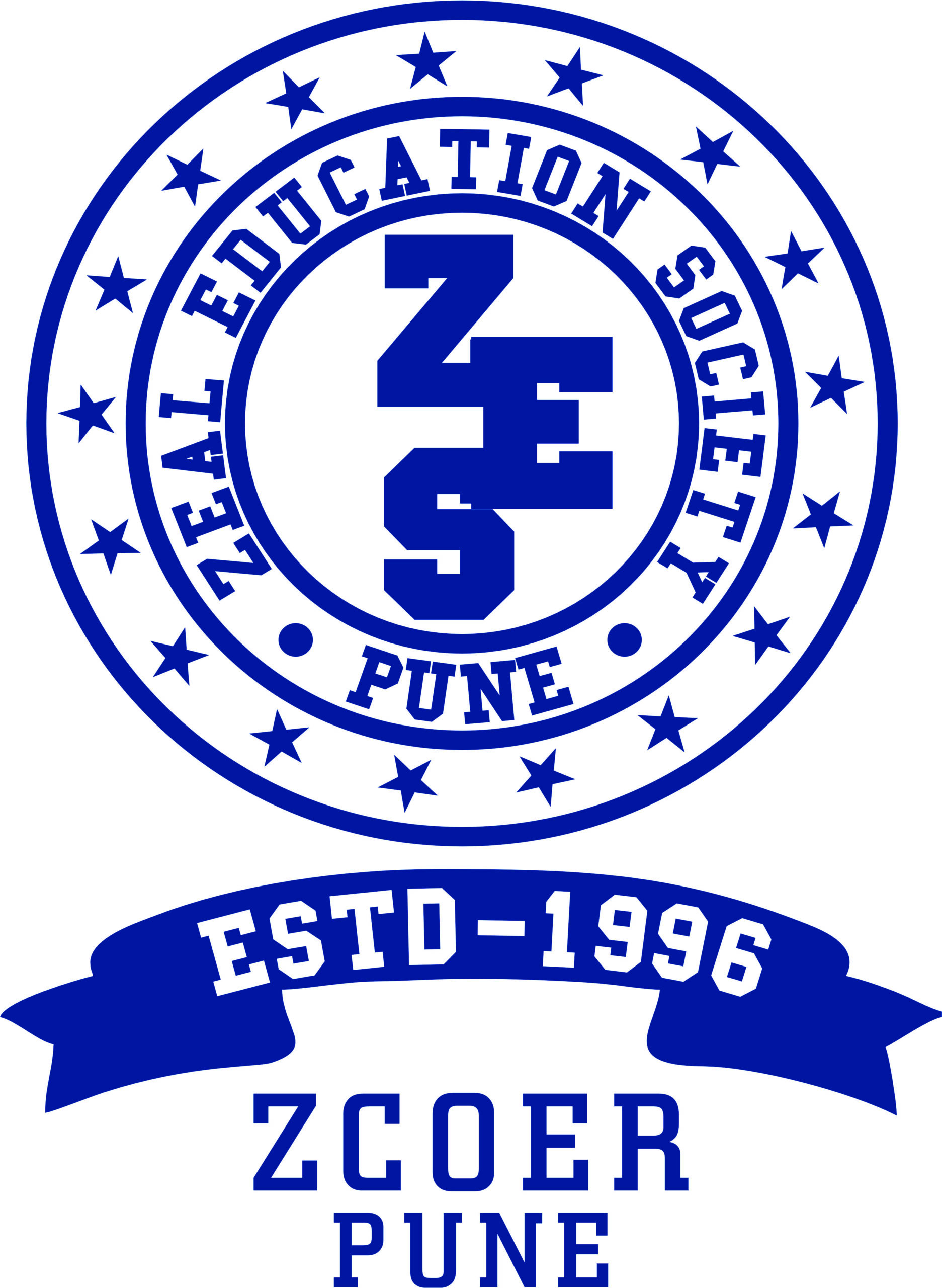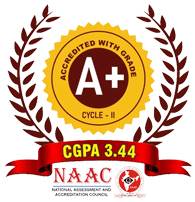Robotics & Automation
- Robotics and Automation Engineering
- About Department
- From HOD Desk
- Vision & Mission
- PEO & PSO, PO & CO
- Autonomy Constitution
- Lab Facilities
- Innovations in Teaching – Learning
- Skill Development
- Faculty Profile
- Faculty Achievements
- Students Achievement
- Students Achievement (University)
- Student Association
- Placement and Internship
- Center of Excellence
- Life @ Robotics
- Downloads
- Newsletter
- PBL
- MoU
- Industry Institute Interaction (III)
- Internship Policy
Program Educational Objectives ( PEO’s)
Program Specific Outcomes (PSOs)
PSO1 Design and Development of robotic systems that are cost effective, environment friendly to solve engineering and societal problems using advanced tools and techniques.
PSO2 Model, program and build an error free, safe, and productive automation systems for various manufacturing processes.
PSO3 Apply domain knowledge of robotics and automation to provide solutions in interdisciplinary areas to meet current industrial challenges.
Program Outcomes (POs)
PO1 Apply the knowledge of mathematics, science, engineering fundamentals and an engineering specialization to the solution of complex engineering problems
PO2 Identify, formulate, review research literature, and analyze complex engineering problems reaching substantiated conclusions using first principles of mathematics, natural sciences and engineering sciences.
PO3 Design solutions for complex engineering problems and design system components or processes that meet the specified needs with appropriate consideration for the public health and safety, and the cultural, societal and environmental considerations.
PO4 Use research-based knowledge and research methods including design of experiments, analysis and interpretation of data and synthesis of the information to provide valid conclusions.
PO5 Create, select, and apply appropriate techniques, resources, and modern engineering and IT tools including prediction and modeling to complex engineering activities with an understanding of the limitations.
PO6 Apply reasoning informed by the contextual knowledge to assess societal, health, safety, legal and cultural issues and the consequent responsibilities relevant to the professional engineering practice.
PO7 Understand the impact of the professional engineering solutions in societal and environmental contexts, and demonstrate the knowledge of, and need for sustainable development.
PO8 Apply ethical principles and commit to professional ethics and responsibilities and norms of the engineering practice.
PO9 Function effectively as an individual and as a member or leader in diverse teams, and in multidisciplinary settings.
PO10 Demonstrate knowledge and understanding of the engineering and management principles and apply these to one’s own work, as a member and leader in a team, to manage projects and in multidisciplinary environments.
PO11 Demonstrate knowledge and understanding of the engineering and management principles and apply these to one’s own work, as a member and leader in a team, to manage projects and in multidisciplinary environments.
PO12 Recognize the need for, and have the preparation and ability to engage in independent and life-long learning in the broadest context of technological change.
Course Outcomes (COs)
Course Code: 207007
Name of Course: Engineering Mathematics-III
CO1 : Solve higher order linear differential equations and apply to modeling and analyzing mass spring systems.
CO2 : Apply Laplace transform and Fourier transform techniques to solve differential equations involved in Vibration theory, Heat transfer and related engineering applications.
CO3 : Apply statistical methods like correlation, regression analysis in analyzing, interpreting experimental data and probability theory in testing and quality control.
CO4 : Perform vector differentiation and integration, analyze the vector fields and apply to fluid flow problems.
CO5 : Solve various partial differential equations such as wave equation, one and two dimensional heat flow equations.
Course Code: 211501
Name of Course: Industrial Electronics and Electrical Technology
CO1 : Develop the capability to identify and select suitable DC motor / induction motor
CO2 : Identify special purpose motor and its speed control method for given industrial application.
CO3 : Program Arduino IDE using conditional statements
CO4 : Interfacing sensors with Arduino IDE
CO5 : Analyze Microcontrollers and embedded systems terminologies and sensors
Course Code: 211082
Name of Course: Strength of Material
CO1 : Explain stress and strain at a point as well as the stress-strain relationship for homogeneous, isotropic materials.
CO2 : Construct shear force and bending moment diagram
CO3 : Detect Shear stress and bending stress in a various cross sections of beams.
CO4 : Design the shaft subjected to torsion.
CO5 : Design and analyze the thick and thin cylinders used for industrial applications.
CO6 : Detect the slope and deflection of beam.
CO7 : Explain and detect the buckling of columns.
Course Code: 211502
Name of Course: Manufacturing Technology
CO1 : Describe and classify metal casting processes
CO2 : Classify and analyze various forming processes
CO3 : Understand special casting and forming processes
CO4 : Classify and describe different types of welding and joining processes
CO5 : Understand various non-conventional machining process.
CO6 : Understand various applications of robots in manufacturing
Course Code: 211503
Name of Course: Material Science and Engineering Metallurgy
CO1 : Define the mechanical properties of materials and conduct destructive and non- destructive tests to evaluate and test the properties of materials.
CO2 : Draw and explain equilibrium diagrams for various alloy systems.
CO3 : Work with Iron-Iron carbide equilibrium diagram and apply this knowledge for classification of steels from microstructure observations.
CO4 : Select proper Heat Treatment, Surface Hardening technique & Isothermal Treatments for the steels considering properties and service requirements.
CO5 : Distinguish different Alloy Steels and Cast Irons based on chemical compositions and microstructures.
CO6 : Familiarize with different types of non-ferrous alloys and Composites with their need scope and applications.
Course Code: 211508
Name of Course: Industrial Engineering and Management
CO1 : Describe Principles and Types of Management
CO2 : Interpret Theories of Motivations and leadership
CO3 : Develop Entrepreneurship skills
CO4 : Apply various Tools and techniques of Industrial Engineering for Productivity improvement
CO5 : Apply Method study and examine the recorded facts and propose new method
CO6 : Apply Work Measurement techniques to determine standard time
Course Code: 211509
Name of Course: Control System Engineering
CO1 : Model a physical system and express its internal dynamics and input-output relationships by means of block diagrams, mathematical model and transfer functions.
CO2 : Understand and explain the relationships between the parameters of a control system and its stability, accuracy, transient behavior.
CO3 : Identify the parameters that the system is sensitive to. Determine the stability of a system and parameter ranges for a desired degree of stability.
CO4 : Plot the Bode, Nyquist, Root Locus diagrams for a given control system and identify the parameters and carry out the stability analysis.
CO5 : Determine the frequency response of a control system and use it to evaluate or adjust the relative stability
CO6 : Design a P, PD, PI, or PID controller based on the transient and steady state response criteria.
Course Code: 211510
Name of Course: Design of Machine Elements
CO1 : Understand the basic principles and process of machine design
CO2 : Understand the theories of failures and Factor of safety to design mechanical component.
CO3 : Analyze the stress and strain on mechanical components such as shaft, power screws, mechanical springs, gears, and bearings.
CO4 : Understand, identify and quantify failure modes for mechanical parts such as shaft, power screws, mechanical springs, gears, and bearings.
CO5 : Demonstrate knowledge on basic machine elements used in design of machine elements to withstand the loads and deformations for a given practical application.
Course Code: 211511
Name of Course: Metrology and Quality Assurance
CO1 : Describe and work with various linear and angular measuring devices.
CO2 : Design limit gauges and work with special measuring devices for gear,screw thread and surface finish measurements.
CO3 : Distinguish various comparators and use profile projector.
CO4 : Use various control charts and various quality assurance tools.
CO5 : Get knowledge of various quality standards and their implementations in industries.
CO6 : Implement TQM and TPM concepts in practice
Course Code: 211512
Name of Course: Computer Graphics for Robotics
CO1 : Understand the basics of computer graphics, different graphics systems and applications of computer graphics.
CO2 : Use of geometric transformations on graphics objects and their application in robot kinematics analysis.
CO3 : Demonstrate the application of Bezier curves and interpolation in robot path planning
CO4 : Apply concept of analytic geometry and geometric algebra for modelling in robotic physics

